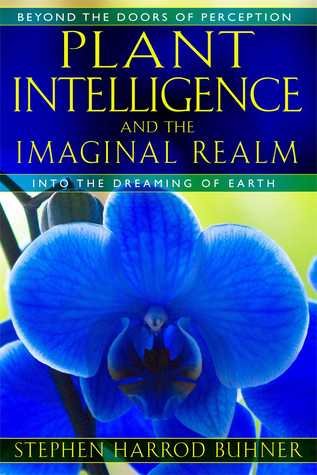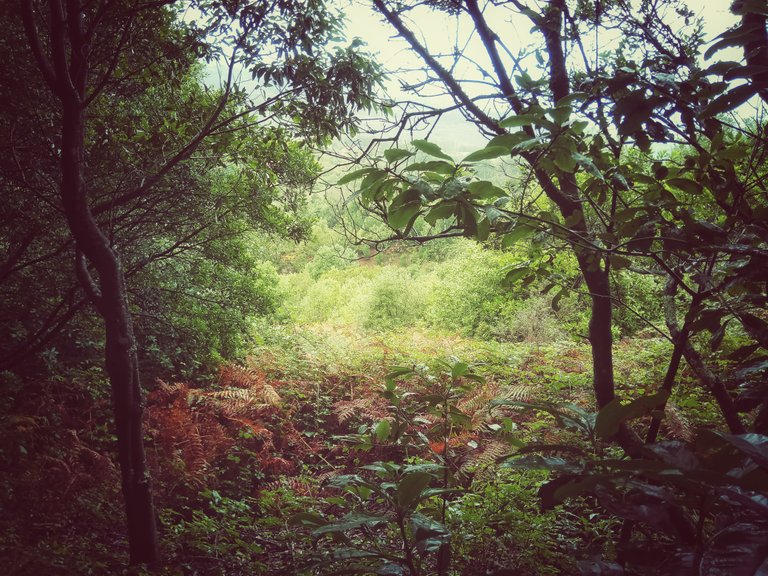
“Once sensory gating channels are expanded, the organism can take in more meanings, and the increased knowledge opens up significant new avenues of behavior, response and innovation. That is the reason that mechanisms exist in every organism (and throughout the ecosystems of the earth) for the expansion of sensory gating channels; the reason why there is no "normal" setting for gating channels in a population; the reason why some people have gating channels so tremendously open. The very functioning of the world depends on it.”
Plant Intelligence and the Imaginal Realm - P.70
Stephen Harrod Buhner is an author of more than 20 books about nature, indigenous cultures, the environment and herbal medicine. He describes himself as an interdisciplinary independent scholar as well as a polymath. This allows him to look at a problem for various perspectives and as he himself states " I read continually, across a very wide range, and began to do so when I was young [...] I do so not only for entertainment or to educate myself but also to cross-correlate insights from multiple and widely divergent fields into usable knowledge that can address some of the problems we face as a species, in particular those that call me to them most strongly."
Reading this book has opened my awareness towards certain ideas I already knew unconsciously must be happening in the world around us but never knew in which ways it happened. This book offers an unprecedented collection of insights towards the Gaian world and it's ability to learn from it's environment and coevolve with other species. Aldous Huxley loved to write about the gates of perception and the need for a more racional approach towards psychedelics and it's service to humanity. In the same sense Stephen Harrod presents us with a natural world in which plants continually experiment with the "openness" of their sensory gating channels to increase the amount of novel information they can recieve from the world around them , and in turn they can adapt much faster to an always changing environment. This sensory gating channels or "Doors of perception" present in every living organism including us is they key to deepening our knowledge of the natural world and towards our own brains, for the act of increasing ones sensibility towards the environment also allows for increasingly novel and unique ways of thinking which are the root of all creativity. As Stephen Harrod describes in his book:
"Every golden thread, if followed, generates somewhere within it, often toward its end, a long floating leap into a moment or experience of what the Spanish poet Federico Garcia Lorca called duende. It is a moment in which a particular kind of experience occurs, one that lies beyond mechanicalism, beyond reductionist approaches, beyond the linear mind and the statistical mentality".
-Plant Intelligence and the Imaginal Realm P.267
This book is such an amazing gift for anyone who, as I always say, can keep an open mind and curiosity towards a subject we know very little about. Filled with curious insights and experiments towards the discovery of the functioning of nature, this book will allow a previously forgotten part of yourself to flourish again and start questioning our own blindness towards a natural system so complicated and filled with magic in which we ourselfs are participating continually, and in this questioning we begin to allow this information-rich world to speak to us and imprint a sense of awe at it's intelligence. I hope you get to enjoy this much as I did and please comment about your own thoughts and ideas around this book.
![]()
Stephen Harrod Buhner es autor de mas de 20 libros sobre la naturaleza, culturas indígenas, el medio ambiente y medicinas herbales. Se describe a sí mismo como un estudioso y un polifacético. Esto le permite ver un problema desde varios puntos de vista y como el mismo dice "leo continuamente, sobre temas muy variados, empezando desde muy pequeno [...] Lo hago no solo por entretenimiento o para educarme sino para tener una correlación cruzada sobre determinados conocimientos de múltiples y muy divergentes campos que sirvan para tener conocimiento que pueda resolver algunos de los problemas que nos encontramos como especie, en particular aquellos que me atraen más fuertemente."
Leyendo este libro ha abierto mi conciencia sobre ciertas ideas que inconscientemente sabía que tenian que estar pasando en el mundo a nuestro alrededor pero nunca supe de que maneras. Este libro ofrece una colleción de conocimientos sin precedentes acerca de Gaia y su habilidad de aprender sobre su entorno y coevolucionar junto a otras especies. Aldous Huxley le encantaba escribir sobre las "Puertas de la percepción" y la necesidad de un punto de vista mas racional hacia los psicodélicos y su servicio a la humanidad. En este mismo sentido Stephen Harrod nos presenta un mundo natural en el cual las plantas continuamente experimentan con la apertura de sus canales de percepción sensorial para incrementar la cantidad de información que pueden recibir de su entorno, y en consequencia esto les permite adaptarse mucho más rapido al entorno siempre cambiante. Estos canales de percepcion sensorial o "Puertas de la percepción" presentes en todos los organismos vivos incluyéndonos a nosotros es la llave para profundizar en nuestro conocimiento del mundo natural y el funcionamiento de nuestro cerebro, pues, el hecho de aumentar la sensibilidad de uno sobre el entorno a su vez aumenta la cantidad de ideas nuevas y únicas que estan en la raiz de la creatividad. Como Stephen Harrod describe en su libro:
"Cada hilo dorado, si es seguido, genera en su interior, un salto largo hacia un momento o experiencia que el poeta espanol Federico Garcia Lorca llamaba duende. Es un momento en el cual una experiencia muy particular ocurre, una que esta mas allá del mecanicismo, mas allá de la vision reduccionista y mas allá de la mentalidad lineal y estadista".
Plant Intelligence and the Imaginal Realm P.267
Este libro es un gran regalo para cualquiera que, como siempre digo, pueda mantener una mente abierta y curiosa hacia un tema que conocemos muy poco. Lleno de percepciones curiosas y experimentos dirigidos hacia el descubrimiento del funcionamiento de la naturaleza, este libro permitira volver a flocerer a una parte olvidada de tu ser para que empieze a cuestionarse nuestra propia ceguera hacia el mundo natural que es tan complicado y lleno de magia, un mundo del cual formamos parte continuamente, y en este cuestionamiento nos permite empezar a permitir la entrada de esta maravillosa información proveniente de un mundo que se comunica con nosotros y imprime una sensación de sobrecogimiento acerca de su inteligencia. Espero que disfruten de este libro tanto como hize yo y por favor comenten acerca de sus pensamientos y ideas alrededor de este libro.
If you enjoyed this post please subscribe to recieve updates on this Curious logbook of Human Knowledge series.
Si te gustó este post por favor suscríbete para recibir actualizaciones de esta serie de El Diario Curioso del Conocimiento Humano.
Posts:
- #0 Introduction
- #1 Siddhartha - Herman Hesse
- #2 The Alchemist - Paulo Coelho
- #3 Treasure Island - Robert Louis Stevenson
- #4 La Rabia y el Orgullo - Oriana Fallaci
- #5 Magic Mushroom Explorer- Psilocybin and the Awakening Earth - Simon G. Powell
- #6 Mastering Bitcoin - Andreas M. Antonopoulos
- #7 Altered Traits - Daniel Goleman & Richard J. Davidson
